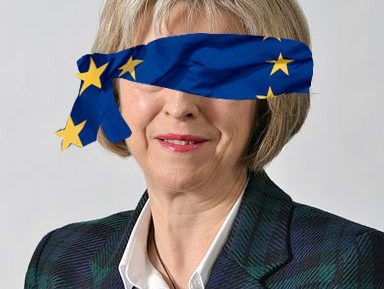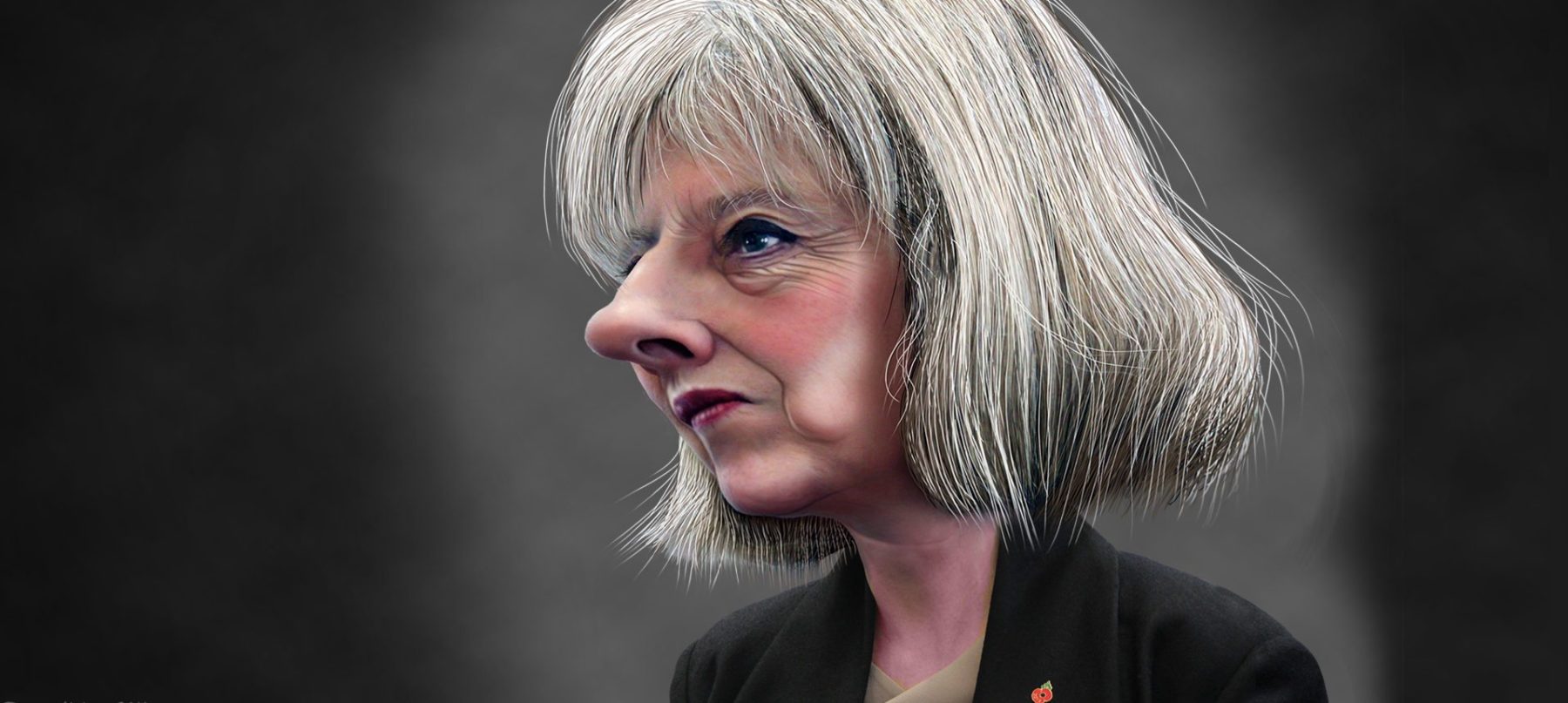The Brexit Blindfold: Theresa May’s pessimistic campaigning
It seems that nearly every facet of recent economic-political discourse, public speeches and addresses, and of course, the myriad of press articles produced daily, concern Brexit in some shape or form. The commanding following it has generated has invaded most aspects of reporting today, making one shudder at the very mention of the B-word, regardless how you voted on the 23rd June last year. The issue for a complacent Conservative party is how this will impact their campaign in the upcoming general election. The façade of this election of building a stronger Brexit-mandate (or however Theresa May spun it) has so far taken over all Tory rhetoric, leaving huge blind spots in domestic policy. This is a fact not missed by Jeremy Corbyn and as such could prove the downfall, or at least dent, in the Conservative campaign.
Staying remarkably quiet on nearly everything bar Brexit they have not only left the economy in the dark but also failed to propose convincing financial policy for the stranded electorate of the UK. This is even more alarming when one takes a look at the performance of the economy over seven years of Conservative rule. Once one removes Brexit from the equation, the long-standing underlying problems become apparent.
 Image: Wikipedia Commons
Image: Wikipedia Commons
The U.K Economy beyond Brexit
Pre-referendum and then-Chancellor George Osbourne already presided over a grim situation. Upon assuming the position in 2010 he vowed to eliminate the budget deficit by 2015. Of course he catastrophically failed, as reflected in the fact that the deficit is estimated to be around £15 billion today, and public debt increased steadily across his tenure. Combine this with the loss of the UK’s triple-A credit rating for the first time since 1978 and it becomes clear that Brexit is not the be-all end-all. Of course, it added to the mess, and current forecasts estimate national debt will increase to over £2 trillion in the coming years. This means that by 2020/1 public debt will be over £200 billion more than Osbourne forecast in the March Budget (pre-Brexit). This relates to an increase of £122 billion over the next five years.
the deficit is estimated to be around £15 billion today, and public debt increased steadily across [George Osbourne’s] tenure
However, these are not only huge figures to be presented in a red briefcase now and then but have clear, tangible impacts on society everyday. Slow pay growth and benefit cuts under the Tories mean that for the poorest third of the country, the next five years will actually be financially harder than the previous five. A recent study by the Institute for Fiscal Studies (IFS) shows how leading up to 2008, improvements in productivity performance of the economy – a good barometer for growth in living standards – averaged around 2% a year. Nine years later and the study notes how per capita incomes have grown by 2% in total.
Furthermore, the productivity growth lost is unlikely to come back (at least at current standards). The Office for Budget Responsibility believes the UK has no spare capacity, i.e. the economy cannot grow any faster without generating inflation. As based on current IFS forecasts then, real average earnings will be no different in 2022 than they were fifteen years earlier, pre-crash. Essentially, as Paul Johnson, Director of the IFS put it: ‘fifteen years without a pay rise.’ This is why Mrs May has been so quiet on economics and so loud over Brexit, outshouting any other concerns (as the last of this parliament’s PMQs illustrated).
real average earnings will be no different in 2022 than they were fifteen years earlier
Resting on their Laurels
Yet the Conservatives still seem near-guaranteed a comfortable win, ensuring a strong majority, and raising a far more important question than addressing mistakes of the past; How will Theresa May use her new powers? This is to ask that in a new and, (based off current polls and projections at least), powerful government will Mrs May finally address the turbulent economy? With an opportunity to adopt an extensive free-trade vision, liberalise the energy sector, renovate corporate taxation to encourage internal investment, and with spare capital to accelerate property and land tax reform, and extend and develop school choice, the Conservatives will be not only in a position to fix the economy but to better it.
The message here then, is an optimistic one. Let us cast off the shackles of the past, including not only previous financial instability but also the lingering doubts of Brexit, and use the present situations to our advantage. Laying the groundwork during Brexit negotiations for an environment that promotes economic growth and prosperity, and seize all those false promises of the Leave campaign – transforming rhetoric into reality. This is the message that Theresa May and the Conservative party should be championing, and one that unless they cotton onto soon, Jeremy Corbyn may run off with completely.
seize all those false promises of the Leave campaign – transforming rhetoric into reality
The latest PMQs demonstrated how tight Mrs May has tied the Brexit blindfold and although heavily prompted to comment upon future domestic policy, she either underscored past action and ‘achievements’ or looked forward to the weakness of a Labour-led Brexit, posing only as chief negotiator, not rounded reformer. The time for Brexit-polemics and incessant whinging on the unfairness of it all is over (I’m talking to you Tim Farron.) It is now time to present a vision for the future, not continuously hide in the shadows of the past. It is time to capture that one opportunity, to seize, not to let it slip.

Comments